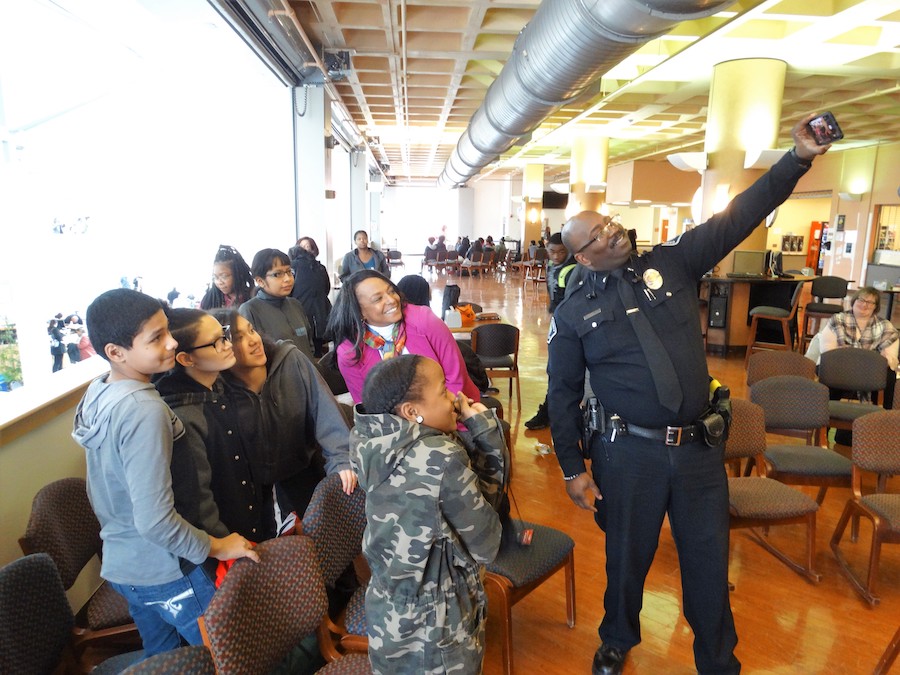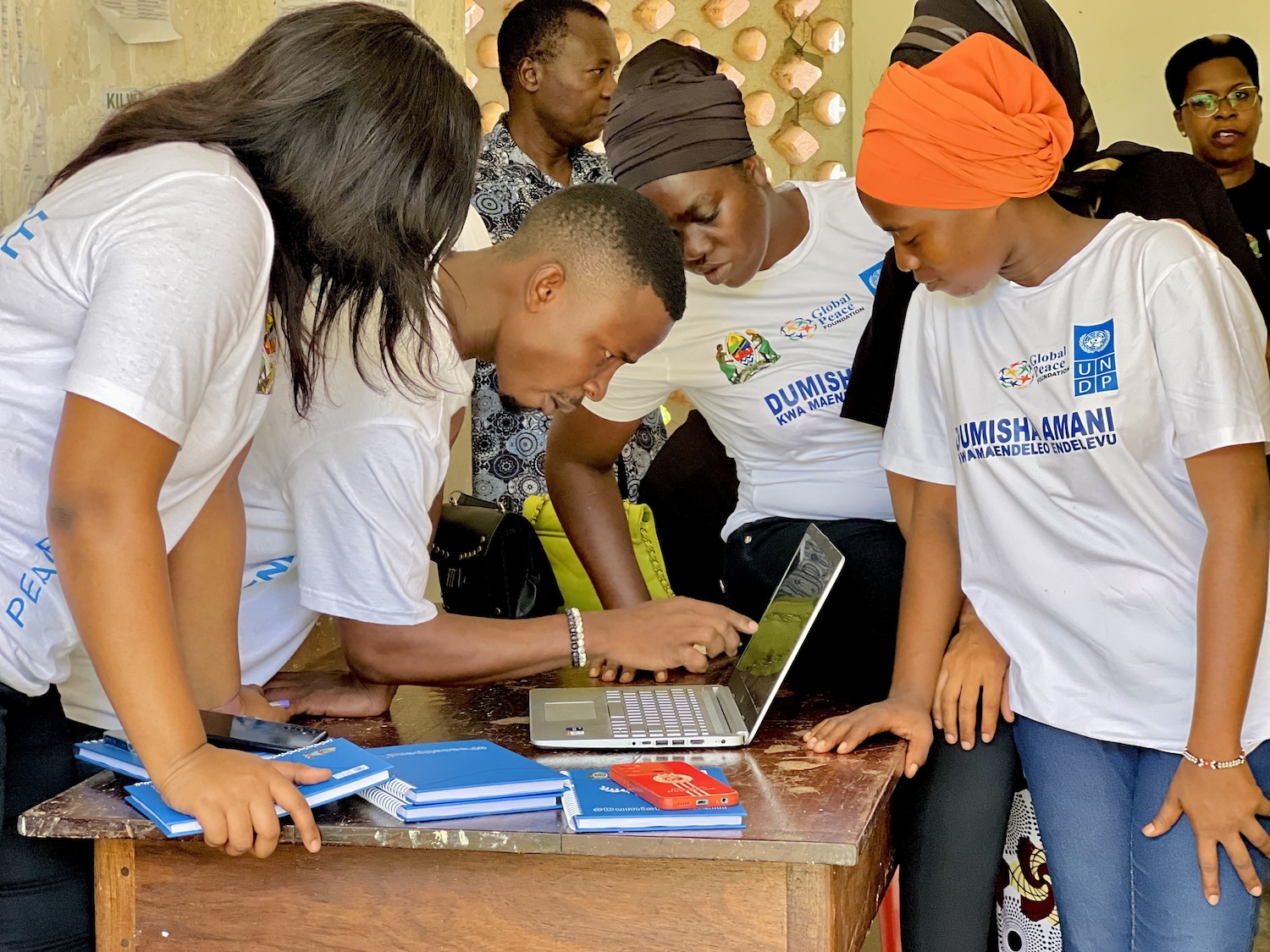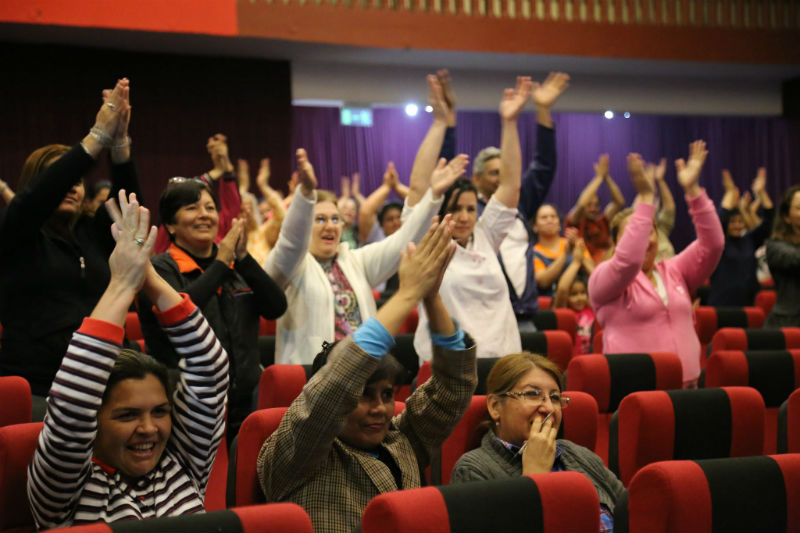WASHINGTON DC, June 20—Global Peace Foundation (GPF), Alliance for Peacebuilding, the International Center for Religion and Diplomacy, and the Nation’s Mosque convened a forum to address best practices in preventing targeted violence and extremism. Panelists shared real stories from the field on challenges and solutions, with a focus based on the framework of a recent RAND Corporation Report on prevention strategies.
Duke Burbridge, a Senior Research Associate at the International Center for Religion and Diplomacy (CRD), looked to his experience building community-based programs in Pakistan and Yemen. Burbridge is currently helping establish local dialogue councils to provide a bottom-up channel to express community needs on a national level, where decision-makers can enact policies to better meet the needs of their constituents. The councils particularly engage religious leaders who speak to a broad cross-section of people, including religious minorities and especially women. Burbridge said ICRC is also working to build a functional network of local stakeholders from different sectors of civil society to address drivers of conflict and provide resolution methods such as sectarian reconciliation. “Good projects start with good research,” said Burbridge. “You really have to know the local dynamics, and that starts with research; it involves talking to people on the ground.” Throughout fifteen years, numerous programs have been implemented in Pakistan to address religious intolerance and youth radicalization.

Urban Peacebuilding Initiative participants
Former New Jersey Assistant Attorney General Wanda Moore, shared her current work with GPF to lead the implementation of a domestic community prevention project in New Jersey, funded by the Department of Homeland Security. The New Jersey Urban Peacebuilding project engaged a diverse group of community leaders, stakeholders, frontline youth workers, educators, social service professionals, law enforcement, and faith leaders to help prevent targeted violence while strengthening community cohesion.
The project provides up-to-date expert curricula, information, and training for some 1,200 community leaders and 1,200 law enforcement officers, fostering trust between local communities and the officials who serve them. In addition to identifying the indicators of potential violence, the program offers social media training and a series of community engagement events in three cities where organizers learned the importance of sharing data and what Moore called “cultural humility.”
Sharing another initiative supported by the U.S. Department of Homeland Security, Imam Talib Sharif, President and Imam of the historic Masjid Muhammad, the Nation’s Mosque, shared about the American Muslims Against Terrorism and Extremism (AMATE) initiative designed to counter the narratives of violent extremism domestically in the United States.
Outlining characteristics that lead individuals to extremist behavior, Imam Sharif contrasted the list with characteristics of civic engagement. This “key ingredient” led to the development of AMATE’s in-person and online focus group of experts and community partners to develop “a credible, authentic, and constructive Muslim voice” to prevent violent extremism. Imam Sharif conveyed reports that extremists are not made in mosques but rather cyberspace, which resulted in the creation of the AMATE website that has produced “one of the most progressive and informational social media campaigns spearheaded by a Muslim organization to date.” The campaign, called “Enough is Enough,” addresses stereotypes of American Muslims and challenges the narrative of extremism that has misrepresented the Islamic faith on the national stage for years.
This online model presented by the Imam uses a multimedia platform to educate a wide audience on radicalization and violence through positive counter-narratives.
All the panelists were able to share personal stories of individuals and families affected by their projects around the nation and world, highlighting the best practices in community peacebuilding across various geographies and methodologies.



